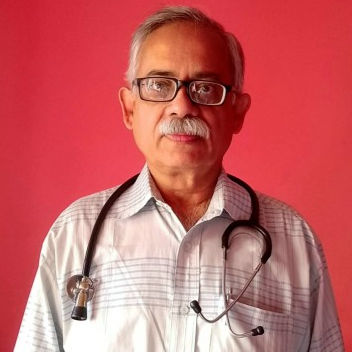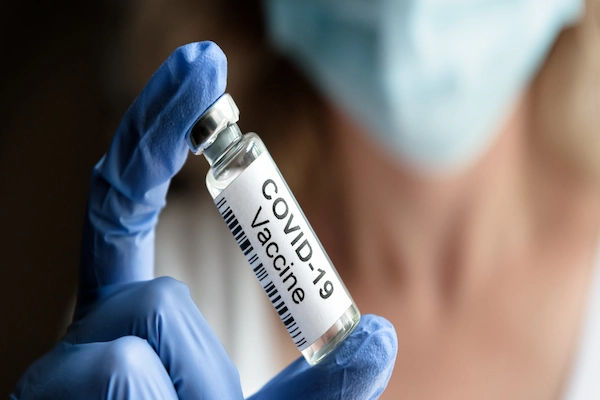Understanding the Anoscopy Test Procedure
Learn about the anoscopy test procedure, why it’s done, what to expect during the exam, and how it helps diagnose rectal and anal health conditions.


Facing any medical test can be a bit overwhelming, especially if you're unsure about what to expect. If your doctor has recommended an anoscopy, you might have questions about the procedure, its purpose, and how to prepare for it. This article will guide you through everything you need to know in a simple and reassuring way.
What is an Anoscopy?
An anoscopy is a quick and straightforward medical test that allows doctors to examine the inside of your anus and lower rectum. It helps detect abnormalities such as haemorrhoids, anal fissures, infections, polyps, or even signs of cancer.
The procedure involves using a small, tube-like instrument called an anoscope, which is gently inserted into the anus to provide a clear view of the anal canal. Unlike a colonoscopy, which examines the entire colon, an anoscopy only checks the lower part of the rectum.
Why Might You Need an Anoscopy?
Your doctor may recommend an anoscopy if you experience symptoms such as:
- Rectal bleeding
- Persistent anal pain or itching
- Unusual discharge
- Suspected haemorrhoids or fissures
- Changes in bowel habits
- Screening for anal cancer (especially in high-risk individuals)
This test helps in early diagnosis and treatment, preventing complications later.
How to Prepare for an Anoscopy?
The good news is that an anoscopy requires minimal preparation compared to other procedures like colonoscopy. Here’s what you should know:
Before the Test:
- No fasting required: You can eat and drink normally before the test.
- Bowel movement: Your doctor may ask you to empty your bowels before the procedure for better visibility.
- Avoid certain medications: If you’re on blood thinners, inform your doctor, as they might advise temporary adjustments.
Consult Top Specialists
During the Test:
1. Positioning: You’ll lie on your side or bend over a table while the doctor gently inserts the lubricated anoscope.
2. Mild discomfort: You may feel slight pressure, but the procedure is usually not painful.
3. Quick process: The test takes only 5 to 10 minutes.
After the Test:
- You can resume normal activities immediately.
- Some people may experience minor discomfort or spotting, which should go away quickly.
- If a biopsy is taken (a small tissue sample for testing), you might have slight bleeding, but this is normal.
Are There Any Risks?
Anoscopy is a low-risk procedure, but in rare cases, you may experience:
- Mild pain or irritation
- Slight bleeding (if a biopsy is taken)
- Infection (very uncommon)
If you notice excessive bleeding, severe pain, or fever after the test, contact your doctor immediately.
Tips for a Smooth Anoscopy Experience
1. Stay Relaxed: Tensing up can make the procedure slightly uncomfortable. Take deep breaths and stay calm.
2. Ask Questions: If you’re unsure about anything, don’t hesitate to ask your doctor before the test.
3. Wear Comfortable Clothing: Loose-fitting clothes will help you feel more at ease.
4. Follow Post-Procedure Care: If a biopsy was taken, avoid heavy lifting or straining for a day.
When Should You Book an Anoscopy?
If you’re experiencing any of the symptoms mentioned earlier, it’s best to consult a doctor. Early detection of anal or rectal issues can prevent complications and improve treatment outcomes.
How to Schedule an Anoscopy?
If your doctor has recommended an anoscopy, you can easily book a consultation or schedule the test through Apollo 24|7. Their expert gastroenterologists and proctologists ensure a comfortable and professional experience.
Conclusion
An anoscopy is a simple, quick, and safe procedure that helps diagnose anal and rectal conditions effectively. While the idea of the test might seem uncomfortable, knowing what to expect can ease your worries. If you have concerns about your anal or rectal health, don’t delay—speak to a doctor and take the necessary steps for a healthier future.
Consult Top Specialists
Consult Top Specialists

Dr. Rajib Ghose
General Physician/ Internal Medicine Specialist
25 Years • MBBS
East Midnapore
VIVEKANANDA SEBA SADAN, East Midnapore

Dr. Chaithra H
General Physician/ Internal Medicine Specialist
6 Years • MBBS, MD General Medicine, DNB General Medicine
Bangalore
Apollo 24|7 Clinic - Karnataka, Bangalore

Dr. Swarna Deepak K
General Physician/ Internal Medicine Specialist
20 Years • MBBS: MD (Internal Medicine) MRCP (UK), EDIC (European Diploma in Critical Care), IDCCM, IFCCM (Critical Care), FID (Royal Liverpool Academy)
Hyderabad
Apollo Hospitals Jubilee Hills, Hyderabad
(425+ Patients)

Dr Aakash Andgi
General Physician/ Internal Medicine Specialist
9 Years • MBBS MD
Bengaluru
Apollo Clinic, JP nagar, Bengaluru

Dr. Pinaki Mukhopadhyay
General Physician/ Internal Medicine Specialist
32 Years • MBBS
Kolkata
MCR SUPER SPECIALITY POLY CLINIC & PATHOLOGY, Kolkata
(25+ Patients)
Consult Top Specialists

Dr. Rajib Ghose
General Physician/ Internal Medicine Specialist
25 Years • MBBS
East Midnapore
VIVEKANANDA SEBA SADAN, East Midnapore

Dr. Chaithra H
General Physician/ Internal Medicine Specialist
6 Years • MBBS, MD General Medicine, DNB General Medicine
Bangalore
Apollo 24|7 Clinic - Karnataka, Bangalore

Dr. Swarna Deepak K
General Physician/ Internal Medicine Specialist
20 Years • MBBS: MD (Internal Medicine) MRCP (UK), EDIC (European Diploma in Critical Care), IDCCM, IFCCM (Critical Care), FID (Royal Liverpool Academy)
Hyderabad
Apollo Hospitals Jubilee Hills, Hyderabad
(425+ Patients)

Dr Aakash Andgi
General Physician/ Internal Medicine Specialist
9 Years • MBBS MD
Bengaluru
Apollo Clinic, JP nagar, Bengaluru

Dr. Pinaki Mukhopadhyay
General Physician/ Internal Medicine Specialist
32 Years • MBBS
Kolkata
MCR SUPER SPECIALITY POLY CLINIC & PATHOLOGY, Kolkata
(25+ Patients)




